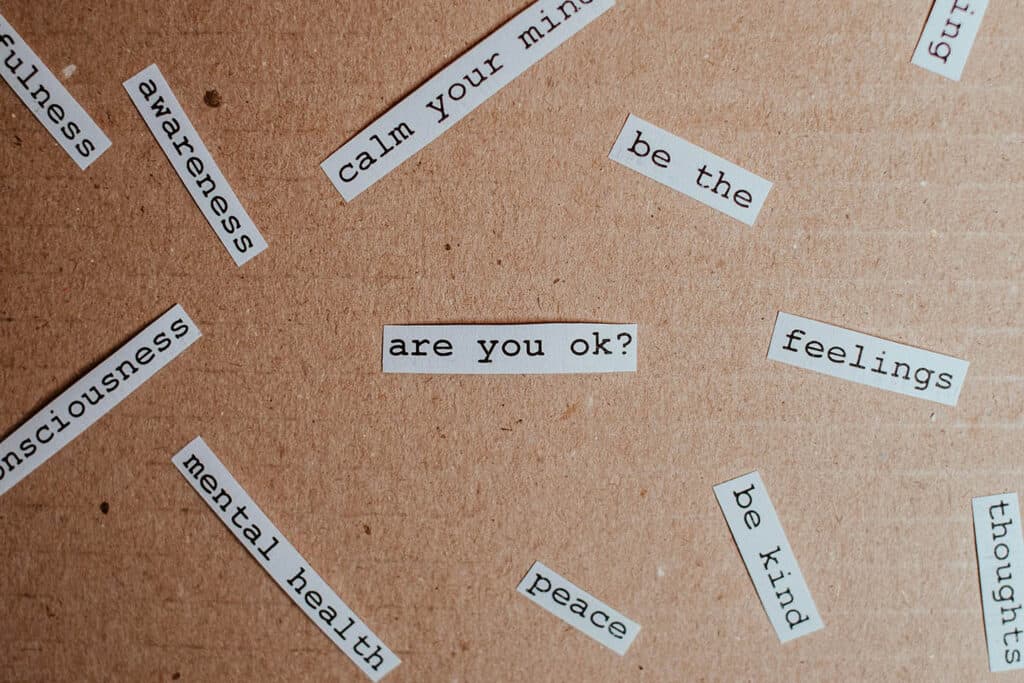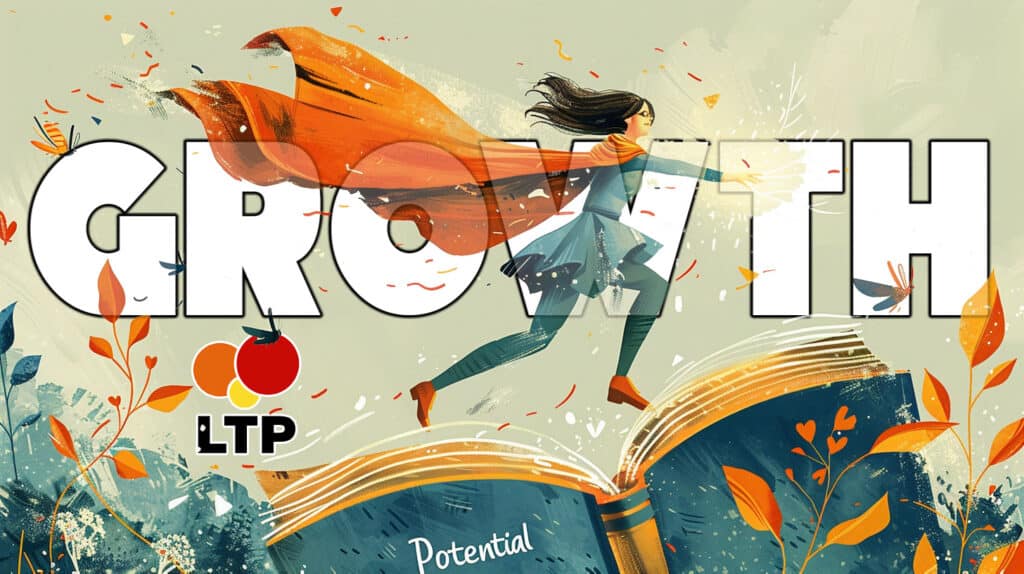


Photo by Martin
Ever found yourself longing for meaningful change, stuck in a cycle of routine?
You’re not alone in seeking personal development. Many face similar challenges on their journey to self-improvement.
As someone who has navigated the paths of personal growth, I understand the journey you’re on. With years of experience, We are here to be your trusted guide.
In this article, we’ll explore ten crucial signs of personal growth. These signs represent milestones on your path to becoming the best version of yourself.
Begin by exploring each sign in detail to uncover insights and strategies for your personal growth journey.
By following these 13 signs and incorporating them into your life, you’ll embark on a transformative journey—a path of self-discovery, resilience, and fulfillment awaits you.
- 1. Increased Self-Awareness
- 2. Improved Emotional Regulation
- 3. Greater Resilience in Challenges
- 4. Enhanced Empathy and Compassion
- 5. Openness to New Experiences
- 6. Improved Communication Skills
- 7. Greater Adaptability to Change
- 8. Confidence and Self-Efficacy
- 9. Meaningful Relationships
- 10. Increased Gratitude and Positivity
- 11. Management and Productivity
- 12. Physical and Mental Well-Being
- 13. Conflict Resolution and Forgiveness
- Signs of Personal Growth: A Recap
Here are 13 signs of personal growth:
- Increased Self-Awareness: Understanding your own thoughts, emotions, and behaviors, which leads to better decision-making and personal development.
- Improved Emotional Regulation: The ability to manage and control your emotions effectively, resulting in reduced stress and healthier relationships.
- Greater Resilience in Challenges: Developing the capacity to bounce back from setbacks, adapt to adversity, and maintain a positive outlook.
- Empathy and Compassion: Showing understanding and care for others’ perspectives and feelings, fostering deeper connections and mutual support.
- Openness to New Experiences: Willingness to explore and learn from unfamiliar situations, promoting personal growth and expanding horizons.
- Improved Communication Skills: Enhancing the ability to express thoughts and feelings clearly, listen actively, and resolve conflicts constructively.
- Adaptability to Change: Being flexible and open-minded in response to changes, which promotes resilience and successful navigation of life transitions.
- Confidence and Self-Efficacy: Believing in yourself and your abilities, leading to increased motivation, achievement, and a positive self-image.
- Meaningful Relationships: Cultivating and maintaining supportive, fulfilling connections with others based on trust, respect, and mutual understanding.
- Gratitude and Positivity: Regularly acknowledging and appreciating the good in life, promoting resilience, happiness, and overall well-being.
- Management and Productivity: Effectively organizing tasks, time, and resources to achieve goals, enhancing productivity and reducing stress.
- Physical and Mental Well-Being: Prioritizing self-care practices that promote both physical health and emotional balance.
- Conflict Resolution and Forgiveness: Skillfully addressing disagreements and letting go of resentment, fostering healthier relationships and personal growth.
See also Life Planning: Setting Goals, Defining Values, and Finding Purpose
1. Increased Self-Awareness

Increased self-awareness is a cornerstone of personal growth, contributing significantly to mental health and overall well-being. By understanding their thoughts, emotions, and behaviors more deeply, individuals can make informed decisions aligned with their values and goals.
For example, recognizing patterns of behavior that keep them stuck in their comfort zone enables them to take steps toward growth and fulfillment.
Moreover, heightened self-awareness empowers individuals to identify and navigate toxic relationships, prioritize self-care, and start the journey of self-improvement and forgiveness.
Here’s 10 tips on how to increase self-awareness:
- Seek Feedback: Ask trusted people for honest insights about your behavior.
- Set Personal Goals: Define and assess your progress toward clear goals.
- Reflect on Values: Consider what’s important to you and align actions with values.
- Observe Reactions: Notice how you respond to situations to understand triggers.
- Take Personality Tests: Use tools like MBTI to learn about your traits.
- Read Self-Help Books: Explore literature focused on self-awareness.
- Practice Active Listening: Focus on understanding others without judgment.
- Monitor Emotions: Track your emotional responses to identify patterns.
- Spend Time Alone: Dedicate alone time to understand your thoughts.
- Stay Curious: Always seek to learn and grow about yourself and the world.
2. Improved Emotional Regulation

Improved emotional regulation is a vital aspect of personal growth, enabling individuals to navigate life’s challenges with greater resilience and maturity. By developing healthier boundaries and making conscious decisions about their emotional responses, individuals can help a greater sense of wellness and fulfillment.
For example, setting boundaries with negative influences in one’s social circle allows for a more positive and supportive environment conducive to personal growth.
Improved emotional regulation empowers individuals to react more effectively to stressors, make healthier choices, and cultivate deeper connections with themselves and others.
7 Tips for Improving Emotional Regulation:
- Learn to Pause: Take a moment to pause and reflect before reacting to a situation to prevent impulsive responses.
- Maintain a Balanced Diet: Eat a healthy diet to support overall mental and emotional health.
- Get Adequate Sleep: Ensure you get enough restful sleep to help manage your emotions effectively.
- Engage in Relaxation Techniques: Practice yoga, progressive muscle relaxation, or other relaxation techniques to manage stress.
- Create a Routine: Establish a daily routine to provide structure and stability, which can help regulate emotions.
- Identify Triggers: Recognize and understand what triggers your emotional responses to better manage them.
- Develop Problem-Solving Skills: Enhance your ability to solve problems effectively to reduce feelings of frustration and helplessness.
3. Greater Resilience in Challenges

Greater resilience in facing challenges is another vital aspect of personal growth. It serves as a sure sign that individuals are on the right track toward self-improvement and development.
When individuals demonstrate resilience, it signifies their ability to bounce back from setbacks and adversities, making mistakes along the way but learning from them. This resilience enables individuals to navigate through life’s ups and downs with greater ease and adaptability.
As they face challenges head-on, individuals grow both personally and professionally, gaining valuable insights and experiences that contribute to their overall growth as a person.
It is through these challenges that individuals realize their strength and capacity to overcome obstacles, ultimately shaping them into more resilient and capable individuals.
4. Enhanced Empathy and Compassion

Enhanced empathy and compassion are pivotal signs of personal growth, indicating a deeper understanding of others’ emotions and experiences.
By developing these qualities, individuals become more attuned to the needs and feelings of those around them, helping stronger and more meaningful relationships.
This heightened awareness allows for greater connection and support, as well as the ability to navigate conflicts with empathy and understanding. Moreover, practicing empathy and compassion leads to a greater sense of fulfillment and happiness, as individuals recognize the positive impact they can have on others’ lives.
Empathy and compassion are integral to fulfilling one’s true potential and creating a more harmonious and compassionate world.
7 ways to Enhance Empathy and Compassion:
- Active Listening
- Pay full attention to others without interrupting.
2. Practice Mindfulness
- Stay present and fully engage with others’ emotions and experiences.
3. Put Yourself in Others’ Shoes
- Imagine how others might be feeling and what they might be experiencing.
4. Learn About Different Perspectives
- Read books, watch films, or engage in conversations that expose you to diverse viewpoints.
5. Show Kindness
- Perform small acts of kindness to develop a compassionate attitude.
6. Reflect on Your Emotions
- Understand your own feelings to better relate to others’ experiences.
7. Volunteer
- Engage in community service to connect with and understand people from various backgrounds.
5. Openness to New Experiences

Photo by Vanessa Loring
Increased openness to new experiences is a pivotal sign of growth, as it signifies a willingness to step outside one’s comfort zone and embrace unfamiliar situations.
By welcoming new experiences, individuals expand their horizons, broaden their understanding of the world, and develop essential skills for navigating life’s complexities.
This openness helps personal development by exposing individuals to diverse perspectives, opportunities, and challenges. It allows them to approach situations with curiosity and adaptability, helping continuous learning and growth.
Ultimately, this openness enables individuals to forge ahead on their personal growth journey with resilience, joy, and a renewed sense of energy and purpose.
6. Improved Communication Skills

Improved communication skills play an important role in personal growth by facilitating better understanding and connection with others. As individuals enhance their ability to express thoughts and emotions effectively, they help strengthen relationships and collaboration, both in personal and professional spheres.
Clear communication reduces misunderstandings and conflicts, allowing for smoother interactions and greater harmony. Moreover, it empowers individuals to articulate their needs, boundaries, and aspirations, thereby asserting themselves more confidently in various aspects of life.
By honing communication skills, individuals can navigate challenges with greater ease, forge deeper connections, and progress along their personal growth journey with clarity and purpose.
10 reasons for Importance of Communication Skills:
- Building Relationships: Fosters strong personal and professional connections.
- Conflict Resolution: Helps resolve misunderstandings and disputes.
- Enhancing Teamwork: Improves collaboration and productivity.
- Career Advancement: Key to professional growth and success.
- Problem-Solving: Aids in identifying and solving issues efficiently.
- Boosting Confidence: Enhances self-confidence and public speaking.
- Facilitating Understanding: Ensures ideas are clearly conveyed.
- Leadership Development: Essential for guiding and motivating others.
- Decision Making: Helps make informed, effective decisions.
- Networking: Builds and maintains a professional network.
7. Greater Adaptability to Change

Greater adaptability to change brings growth by helping resilience and flexibility in navigating life’s uncertainties. Individuals who start change are better equipped to let go of past mistakes, take responsibility for their actions, and learn from challenges.
They develop a real sense of self-awareness, enabling them to reflect on their experiences and make positive changes.
By focusing on the present situation and finding meaning in even the smallest of things, they cultivate gratitude and positivity. This adaptability empowers individuals to evolve into better versions of themselves, helping personal growth along their journey.
See also Career and Wealth: Crafting a Fulfilling Career Path and Financial Wellness
8. Confidence and Self-Efficacy

Increased confidence and self-efficacy are significant signs of personal growth, indicating a person’s evolving sense of self-assurance and belief in their abilities. As individuals become more confident, they are more likely to make conscious decisions aligned with their values and goals.
This newfound self-assurance allows them to overcome challenges and setbacks with resilience and determination. With greater confidence, individuals are more inclined to take risks and step outside their comfort zones, leading to further growth and development.
Ultimately, increased confidence and self-efficacy contribute to a sense of inner peace and fulfillment, as individuals realize their capacity to navigate life’s complexities and pursue their aspirations with conviction and purpose.
9. Meaningful Relationships

Meaningful and fulfilling relationships as a sign of growth, provide a supportive environment for self-discovery and development. Through genuine connections with others, individuals can gain valuable insights into themselves, their values, and their goals.
These relationships offer opportunities for mutual growth, encouraging individuals to challenge themselves, communicate effectively, and navigate life’s challenges together. By prioritizing healthy relationships and emotional intimacy, individuals can cultivate a sense of belonging and fulfillment, contributing to their overall well-being and personal growth journey.
Meaningful connections remind us of the importance of human connection, empathy, and understanding in our quest for self-improvement and fulfillment.
10. Increased Gratitude and Positivity

Gratitude and positivity help personal growth by bringing a mindset of abundance and appreciation. When individuals cultivate gratitude, they become more aware of the positive aspects of their lives, leading to a greater sense of fulfillment and contentment.
Positivity helps individuals navigate life’s challenges with resilience and optimism, enabling them to overcome obstacles, responsibilities and setbacks more effectively.
Moreover, practicing gratitude and positivity encourages individuals to make conscious decisions that align with their values and goals, promoting self-improvement and growth.
Overall, an attitude of gratitude and positivity is a good sign of a person growing and becoming a better version of themselves.
10 Tips on How to Practice Gratitude:
- Keep a Gratitude Journal: Write down three things you are grateful for each day.
- Express Thanks: Regularly say “thank you” to others for their kindness and support.
- Count Your Blessings: Reflect on positive aspects of your life, big and small.
- Mindful Appreciation: Notice and appreciate the beauty in your surroundings.
- Gratitude Meditation: Meditate on feelings of gratitude and appreciation.
- Write Thank-You Notes: Send notes of gratitude to people who have made a difference in your life.
- Practice Daily Reflection: Take a moment each day to reflect on what you are grateful for.
- Focus on the Present: Be mindful of the present moment and appreciate what it offers.
- Share Gratitude: Share your gratitude with loved ones and friends.
- Celebrate Successes: Acknowledge and celebrate your achievements and milestones with gratitude.
11. Management and Productivity

Photo by Jonathan Borba
Improved time management and productivity enabling individuals to achieve their goals more effectively. By managing their time efficiently, individuals can create a better work-life balance, leading to reduced stress and improved well-being.
Being more aware of how time is spent allows for the creation of more meaningful moment and relationships. As individuals notice the difference in their productivity levels, they feel more empowered to achieve their long-term aspirations.
Mastering time and money management helps a sense of control and accomplishment, contributing significantly to overall personal growth and development.
12. Physical and Mental Well-Being

Physical and mental well-being are foundational pillars of personal growth, essential for resilience and achieving fulfillment.
Engaging in practices like using a self-care planner, dedicating time for 10-minute sleep meditations, and adhering to a self-love routine contribute significantly to holistic well-being.
These practices not only enhance physical health but also promote mental clarity and emotional stability. By prioritizing moments of self-care and initiating open conversations about feelings, individuals become more aware of their needs and boundaries.
As a result, they can navigate relationships more effectively, address challenges with greater ease, and cultivate a deeper sense of self-awareness, ultimately propelling them forward on their journey of personal growth.
13. Conflict Resolution and Forgiveness

Conflict resolution skills and forgiveness as parts of personal growth, contributing to becoming a better person and helping positive relationships. By consciously deciding to forgive oneself and others, individuals can release toxic emotions and move forward in the right direction.
Learning to navigate conflicts and forgive allows for more meaningful connections with others and less time spent dwelling on past wrongs. It’s a process that involves hard work and commitment but leads to a more peaceful and fulfilling life.
By letting go of grudges and focusing on the little things, individuals can begin conversations and pave the path towards growth and healing.
10 Tips for achieving conflict resolution and forgiveness:
- Listen First: Hear the other person’s perspective attentively.
- Stay Calm: Keep emotions in check to facilitate productive discussions.
- Seek Understanding: Clarify misunderstandings by asking questions.
- Express Yourself: Use “I” statements to share your feelings and thoughts.
- Practice Empathy: Understand the other person’s feelings and point of view.
- Focus on Solutions: Collaborate on finding mutually agreeable solutions.
- Apologize When Needed: Take responsibility and offer a sincere apology.
- Forgive: Let go of resentment for your own peace of mind.
- Set Boundaries: Establish clear boundaries to prevent future conflicts.
- Reflect and Learn: Use conflicts as opportunities for personal growth.
See also Family Bonding: Strengthening Family Connections and Relationships
Signs of Personal Growth: A Recap
In conclusion, the signs of personal growth are multifaceted and deeply impactful on one’s life journey. Engaging in practices such as self-care and self-reflection signifies a commitment to nurturing oneself and helping inner growth.
Setting boundaries and making conscious decisions to distance oneself from toxic individuals demonstrate a newfound sense of self-worth and respect. Additionally, the ability to forgive oneself and others is a vital part of the growth process, freeing individuals from the weight of past grievances and allowing them to move forward with a lighter heart.
Surrounding oneself with positive influences and engaging in meaningful conversations further enriches this transformative journey.
Ultimately, personal growth is not about reaching a destination but about initiating the continuous process of becoming the best version of oneself, no matter the twists and turns life may present.


